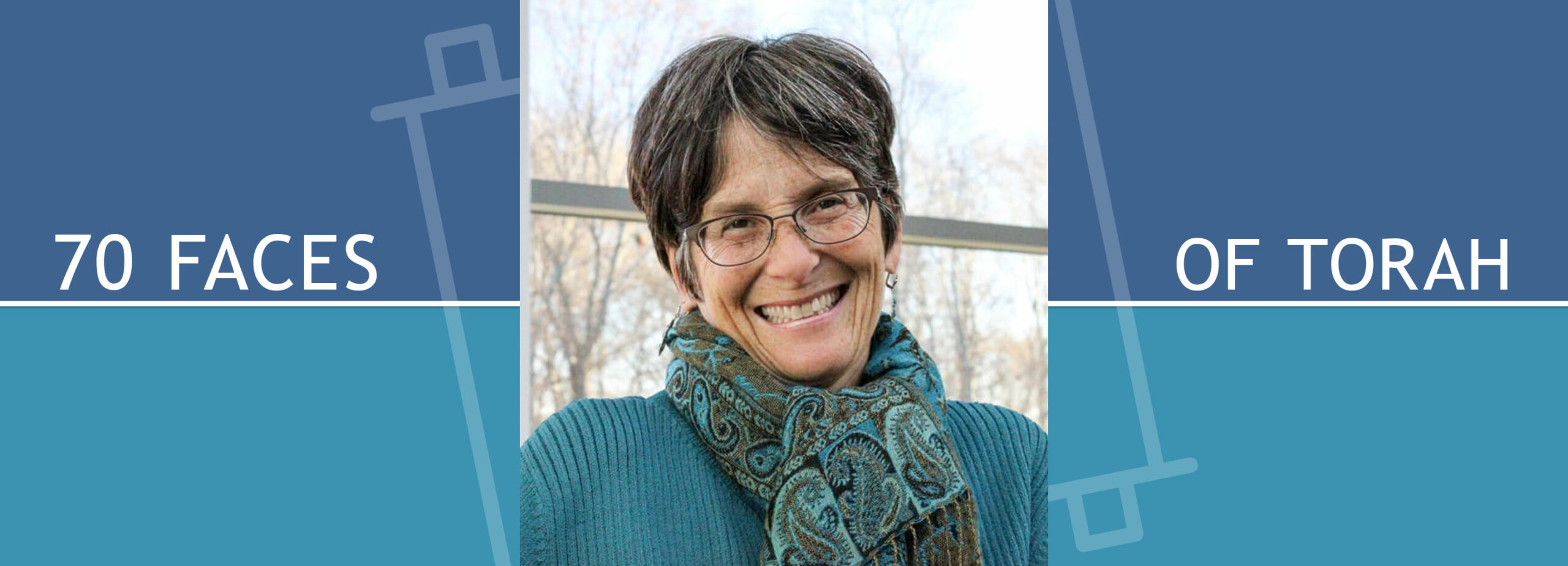Numbers On Grasshoppers and Angels

Parashat Sh’lach Lecha (Numbers 13:1-15:41)
At the beginning of this week’s parsha, we encounter the Israelites in a moment of intense vulnerability and self-doubt.
The people have been wandering in the wilderness for over a year. So much is behind them: moments of miraculous rescue, relief, revelation; other moments of thirst, terror, and trembling; and always, the thin, almost imperceptible line between them.
What lies ahead is unknown. Guided on their journey by a pillar of fire at night and a pillar of cloud by day, these ex-slaves – still strangers to their own new-found freedom – are commanded to follow a God they cannot see to a land they cannot imagine. It is not difficult to understand why they slip so easily, again and again, from faith into raw fear.
As our portion opens, Moses is commanded by God to send men to “scout out the land of Canaan” – which he does immediately, selecting twelves spies, a leader from each tribe, and sending them off with these instructions: “Go up there into the Negev and on into the hill country and see what kind of country it is. Are the people who dwell in it strong or weak, few or many? Is the country in which they dwell good or bad? Are the towns they live in open or fortified? Is the soil rich or poor?”
All good questions. The spies spend forty days scouting out the land. When they return, they go directly to Moses and Aaron and, before the entire community, they make their report. It begins on a positive note. “We came to the land you sent us to; it does indeed flow with milk and honey.” But as they continue with a description of the people who inhabit the land, the message becomes more equivocal. “The people who inhabit the country are extremely powerful and the cities are fortified and very large.” A less glowing report, but still, a seemingly reasonable response to their assignment.
It is at this point that things begin to unravel. Caleb steps forward, offering words of encouragement and trying to stem the tide of panic rising among the people. But the other spies take on an even more ominous tone. Their message now turns from one that is tinged with fear to one that predicts certain failure. “We cannot attack that people, for it is stronger than we.” And then, reaching fever pitch, “The country that we traversed and scouted is one that devours its inhabitants. All the people that we saw in it are giants. We looked like grasshoppers to ourselves, and so we must have looked to them.”
It is an exquisite articulation of self-doubt: “Lo nuchal. We can’t do this.” And the ever-so-human projection of one’s own sense of inadequacy onto others: “We looked like grasshoppers to ourselves, and so we must have looked to them.”
It is this statement that captures the attention of an extraordinarily poignant commentary from Midrash Tanchuma. “The Blessed Holy One said to the scouts: “You don’t know what you have just let your mouths utter. I am ready to put up with your saying, ‘We looked like grasshoppers to ourselves.’ But I do take offense at your asserting, ‘And so we must have looked to them.’ Could you possibly know how I made you appear in their eyes? How do you know but that in their eyes you were like angels?’”
In this brief imagined exchange between God and the scouts, the midrash underscores the insidious nature of self-doubt, the way we can mistake it for truth, the way it can indeed become “a land that devours its inhabitants.”
The antidote, the midrash insists, is cultivating the capacity to open up some space between our inner experience and outer reality. This is the vital, life-giving space of breath, hope, possibility. The voice of God is the voice that speaks to us, saying: I understand that you are afraid. I understand that you feel small. But take a minute. Leave room for the possibility that your fear is not the whole story. How do you know but that in their eyes you were like angels?
Perhaps the very end of this week’s portion – the mitzvah of tzitzit, of wearing fringes on the corners of our garments – can best be understood as a way of ritually enacting this very truth, a way of keeping open this dialogue with the divine voice in our own lives.
The word tzitzit, according to Rashi and other commentators, is related to the Hebrew word metzitz, or “to peer,” as in the verse from Song of Songs, “metzitz min hacharakim” – “peering through the latticework.”
We, who have a tendency to see ourselves as grasshoppers at times, need to be continually reminded to expand our vision and remember that we stand in every moment before a loving God. In those moments when self-doubt clouds or constricts our vision, we are asked to lift our eyes, to try to peer through the cracks in the walls we have built, and open ourselves to the possibility that we may be like angels in the eyes of an Other.
Rabbi Sharon Cohen Anisfeld is President of Hebrew College in Newton Centre, MA.
Interested in a possible career in the rabbinate? Read Rabbi Dan Judson’s article “Jewish Lessons on Meaningful Work.“ Rabbi Judson is Dean of the Rabbinical School of Hebrew College. He has a PhD in Jewish history from Brandeis University.

